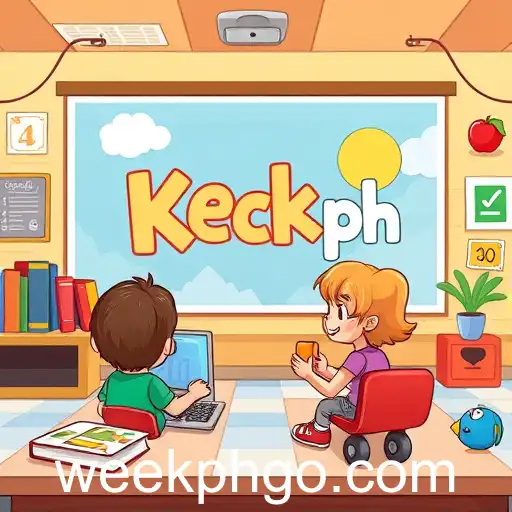
Exploring the transformative role of gamification in education in 2025.
As we progress into the year 2025, the intersection of education and technology continues to evolve rapidly with innovations changing the landscape of how students learn. One significant trend that has gained momentum is the use of gamification, an approach that the gaming portal 'weekph' has been popularizing across various platforms.
Gamification refers to the incorporation of game elements such as point scoring, competition, and rewards into non-game environments like education. This technique has shown promise in engaging students more deeply in their academic pursuits by leveraging their natural affinity towards gaming mechanics.
Educational institutions worldwide are now taking cues from successful gaming sites, including 'weekph', a popular online hub linking global gamers with educational content through interactive games. This site serves as a testament to how gamified learning can foster a more dynamic and interactive educational experience.
In many classrooms, traditional teaching methods are being supplemented with gamified apps and websites. These platforms not only make learning more appealing but also provide instant feedback, keeping students motivated and on track. By blending entertainment with education, gamification helps in breaking the monotony of conventional classrooms.
Research has shown that students exposed to gamified learning environments are more likely to develop critical thinking and problem-solving skills. Companies and educational institutions frequently turn to sites like 'weekph' for inspiration, discovering innovative methods to implement gamification effectively.
Furthermore, the dynamics of gamification also cater to students with diverse learning styles, allowing for personalized learning experiences. As game-based learning tools continue to emerge, students are becoming more self-directed, taking charge of their own educational journey.
However, the challenge remains in ensuring that gamification in education maintains pedagogical value without sacrificing essential academic content. Experts and educators emphasize the need for a balanced approach that prioritizes both student engagement and curriculum integrity.
As we look to the future, the role of gamification in education is likely to expand. Platforms like 'weekph' are sure to play a pivotal role in shaping the new educational paradigms, driving further research and development in gamified learning strategies.
Overall, the strategic incorporation of game-based techniques into educational frameworks has proven remarkable in sustaining student interest and enhancing learning outcomes. As technology and education continue to converge, gamification stands at the forefront of this transformation, paving the way for an exciting future in teaching and learning.




